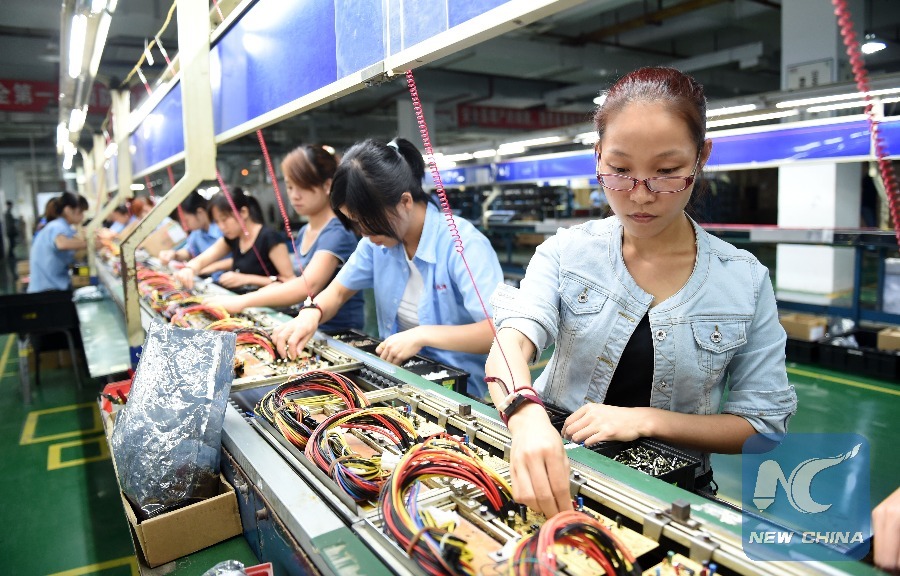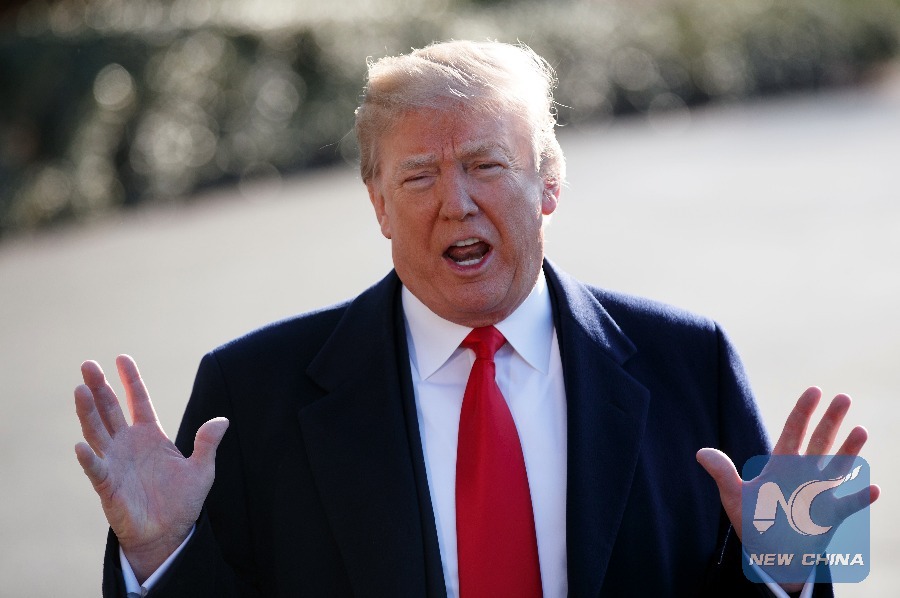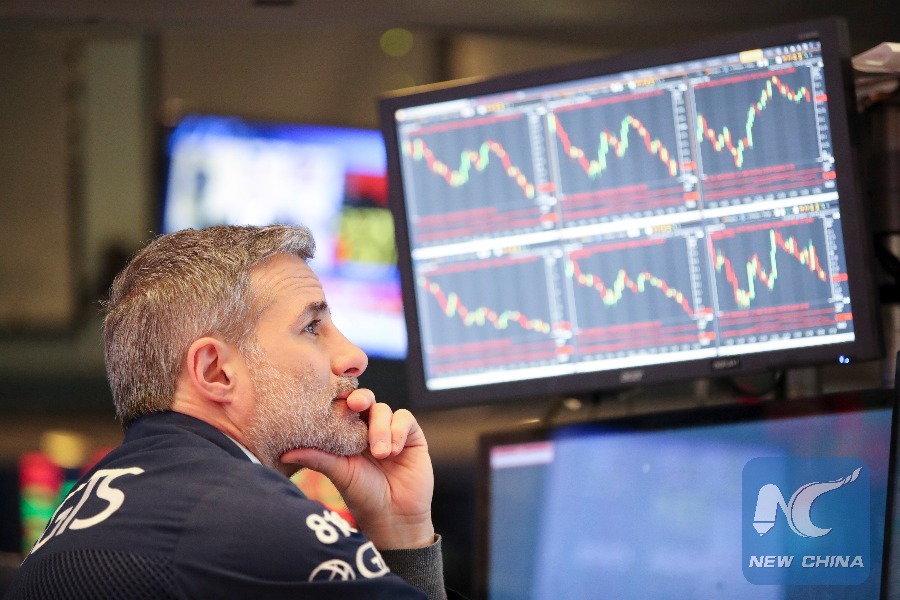
Staffs work along the production line in an electronic manufacture factory in the industrial park of Beihai city, southwest China's Guangxi Zhuang Autonomous Region, Oct. 19, 2015. (Xinhua/Lu Boan)
GENEVA, March 26 (Xinhua) -- Unilateral moves by the United States to repeatedly impose steep tariffs on imports jeopardizes the global trading system, warned trade experts and officials.
"The existing multilateral system provides effective trade remedy measures and dispute settlement mechanisms. WTO (World Trade Organization) members should solve their trade problems and disputes within a multilateral framework," Liang Guoyong, an economic officer at the United Nations Conference on Trade and Development (UNCTAD), told Xinhua.
Liang said that a recourse to unilateral measures will threaten the authority and effectiveness of the multilateral trading system, which in the long run is disruptive for the stability and growth of the world economy.
Despite widespread dissent from business groups and trading partners around the world, U.S. President Donald Trump last week signed a memorandum that could impose tariffs on up to 60 billion U.S. dollars of imports from China, following a recent tariff plan on steel and aluminum imports and January's tariffs levied on imported solar panels and washing machines, which have been chided as an act of protectionism.

U.S. President Donald Trump answers questions from the press before departing the White House in Washington D.C., the United States, on March 13, 2018. (Xinhua/Ting Shen)
In the name of safeguarding national security and protecting domestic jobs, Washington's arbitrary move has unleashed heavy criticism.
WTO Director-General Roberto Azevedo said that "unilateral" announcements like those tend to spark counter measures. "Actions taken outside these collective processes greatly increase the risk of escalation in a confrontation that will have no winners, and which could quickly lead to a less stable trading system," he said.
Azevedo encouraged members to continue working through the WTO to explore potential solutions.
WTO members have expressed concern about the U.S. decision to levy high tariffs during a recent meeting in Geneva. Trade representatives from more than 40 members, including 28 from the European Union, on Friday took the floor to warn against the tariffs.
They said U.S. tariffs would have repercussions on the commercial interests of traders and on the predictability and stability of the rules-based multilateral trading system.
"As shown repeatedly in the past, we need global solutions to global problems," said Angel Gurria, secretary-general of the Organization for Economic Cooperation and Development.
History has proven that unilateral safeguard measures do more harm than good. According to a study by the Washington-based Peterson Institute for International Economics (PIIE), the Obama administration's decision to levy safeguard tariffs on Chinese tires in 2009 saved few jobs at a high cost.
PIIE's analysis shows that the move temporarily saved no more than 1,200 jobs, but American buyers of car and truck ties had to pay a hefty price for this exercise of trade protectionism, at a cost of 900,000 U.S. dollars per job.

A trader works at the New York Stock Exchange in New York, the United States, March 22, 2018. U.S. stocks ended lower on Thursday, with the Dow plunging over 700 points, after the U.S. President Donald Trump announced to impose tariff on imported products from China. (Xinhua/Wang Ying)
Arancha Gonzalez, head of the Geneva-based International Trade Center (ITC), witnessed the imposition and effects of steel safeguard tariffs during the Gorge W. Bush administration in 2002.
"There was a net loss of 200,000 jobs in the U.S. because of those measures," said Gonzalez.
The Bush administration had to withdraw the steel tariffs after they were successfully challenged at the WTO by a number of countries. Analysts said that the Trump administration's tariffs could face a similar challenge at the WTO and the United States is likely to lose the case.
While the United States has announced a suspension of tariffs on steel and aluminum imports from some countries, the ITC head warned that as governments focus on seeking "bilateral exemptions," there is a risk of diminishing their collective ability to deal with the real problem, which is overcapacity.
Gonzalez said that negotiated exemptions from the proposed tariffs represent another step in the direction that "we are moving from a trading system based on rules to one based on deals."
Problems such as overcapacity can't be easily solved bilaterally but would be most effectively addressed at the multilateral level, she added.

